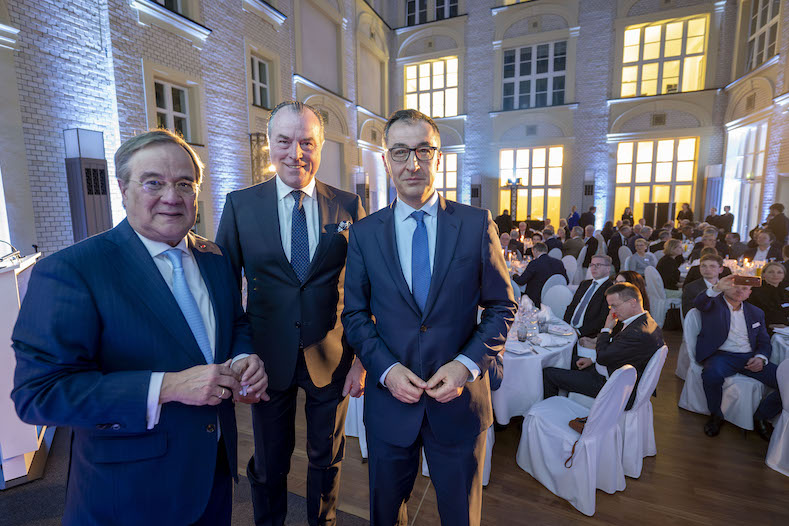Cem Özdemir and Armin Laschet are guests at the Tönnies Research Symposium

Where is German livestock farming heading? 150 top-class guests from business, politics, trade and agriculture clearly answered this question at the Tönnies Research symposium on Monday and Tuesday in Berlin: Animal husbandry is and remains an essential part of circular agriculture and meat is an important building block for a balanced, healthy diet. This requires a common direction for all those involved in the chain.
The non-profit Tönnies Research invited the who's who of food retail, business, agriculture and politics to its sixth symposium in Berlin. This year the theme was the transformation of local agriculture. In the end, all the experts agreed: meat remains an important and essential part of a balanced diet. German livestock farming is a world leader both in terms of climate technology and animal welfare aspects. In addition, the sector is working on innovative developments. The aim is to make livestock farming in Germany ecologically and economically sustainable and to adapt it to current challenges.
“We want to do justice to changing diets. And that also includes local meat,” said Federal Agriculture Minister Cem Özdemir (Alliance 90/The Greens) during his speech. He emphasized that it was about nothing less than ensuring the food supply of the German population. But: “Animal farming and meat consumption are a target for those who consciously want to polarize.” The entire chain, i.e. politics, trade, business and agriculture, would have to resist this polarization in order to instead come to a serious and fact-based consensus that suits everyone help.
Clemens Tönnies, managing partner of the Tönnies Group, made it clear that there was no longer any time left to discuss the “how” for a long time. If the federal government limits itself to concepts that are not implemented promptly, agriculture, the meat industry and food retailers would have to become more active. This will then be done within the scope of the market's possibilities in order to align animal husbandry in Germany with greater animal welfare and environmental protection. “We have to think creatively,” he said, calling for new models to finance investments in animal welfare stables. The fact is: “Young farmers want to take the path to a sustainable future. We have to pave the way for them. Farmers need to be sure which barn to build,” he emphasized. A key for domestic producers is “five times D”, i.e. birth, rearing, fattening, slaughtering and processing in Germany. Trade and the food industry have clearly committed themselves to this. Corresponding surcharges must be paid to the producers for the respective additional effort. “And it still has to remain affordable for the consumer,” continued Clemens Tönnies. It is therefore important to go broader and include the areas of food service and specialist shops.
According to former North Rhine-Westphalia Prime Minister Armin Laschet (CDU), who described his experiences in the debates about the restructuring of the energy industry in coal regions, a consensus is needed to reach a consensus. The Christian Democrat also drew parallels to the coal compromise when it comes to future livestock farming in Germany. A commitment to local agriculture that is supported by society as a whole is essential. The question of what nutrition in Germany could look like in the future can only be answered on a solid basis.
Armin Laschet therefore appealed to everyone involved to come together quickly and reduce bureaucracy. “The exchange between politics, companies, retailers and farmers must be intensified. The principle of consensus must also be successful in agriculture,” he emphasized. “The alternative would be to view the sector as not systemically important and, as a result, to import the food,” said the long-time top politician of the CDU. But this is neither sustainable nor does it serve animal welfare; on the contrary, it endangers security of supply.
Clemens Tönnies welcomed the clear statements. “I am optimistic that we are at the beginning of a new dialogue to finally reach a lasting solution,” he said.
